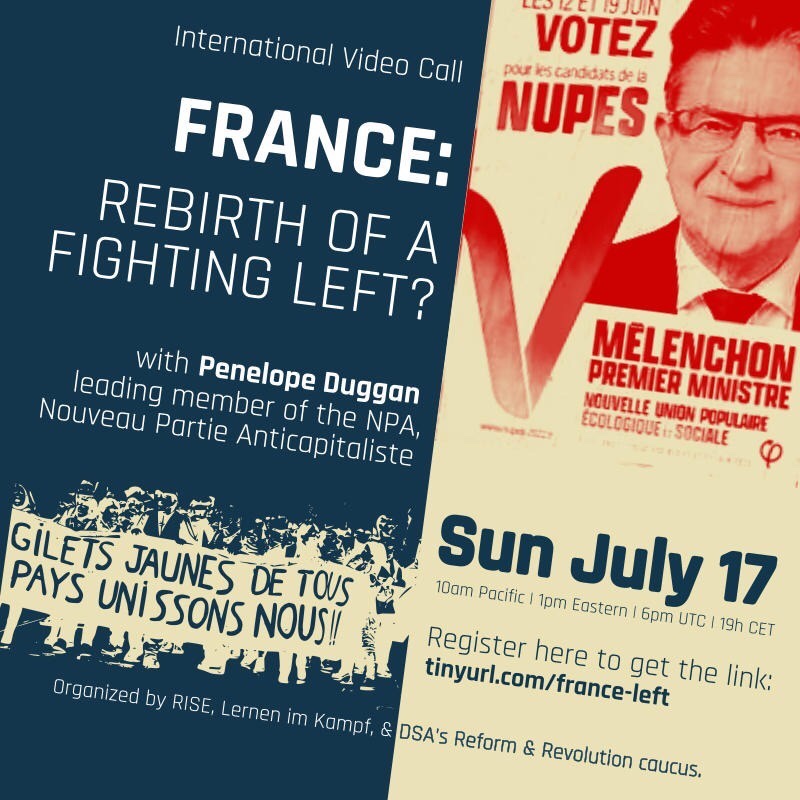Archive for the ‘Greece’ Category
Russian and Ukrainian activists silenced at Greek MeRA 25 party event – Tankie Politics in Action
A shameful story from Athens – source : https://freedomnews.org.uk/2023/03/10/russian-and-ukrainian-activists-silenced-at-mera25-event/ also : https://www.europe-solidaire.org/spip.php?article65987; also
Russian activist Artem Temirov writes on what he sees as a concerning trend within the Hellenic left to fall into a knee-jerk “anti-imperialism” that is in fact anything but.
Author’s note: A significant part of the Greek Left for a very long time has been plagued by narrow anti-Americanism that has replaced genuine anti-imperialism. As a result of that even supposedly more moderate voices on the Left often fell in the trap of siding, even if in a subtle way, with regimes that supposedly oppose the West, regardless of how authoritarian and oppressive they might be. This has created an increasingly widening gap between this Greek Left current and leftist dissidents that come from countries whose governments are perceived by the former as “anti-imperialist”. It seems that the former are disinterested in listening to those who have come to seek refuge and avoid arrest and torture. There have even been recorded cases of representatives of the more hard-line pro-Putinist Left in Greece physically attacked an Iranian refugee at a public event, because the latter protested the pro-Putinist, pro-Mullah propaganda he was hearing. The case presented below, if much milder in regards the confrontation, represents continuation in this worrying trend of Greek leftists refusing to listen to the voices of those who have lived under the boot of supposed “anti-imperialist” regimes. This comes to indicate an ideological dogmatism, as well as a loss in trust in the abilities of common people to self-organize and initiate from below revolutionary change. In the imaginary of such leftists greater hope for social change is placed not on the potentials of popular self-determination and self-emancipation, but on foreign geopolitical powers. This must be perceived as drastic counter-revolutionary regression towards Stalinist type of thinking that can only nurture authoritarian logics.
Last year, my wife and I arrived in Greece. While I am a Russian citizen, my wife is a citizen of Ukraine. She left Kyiv a week after the start of Russia’s full-scale invasion of Ukraine, and I left Russia a few days later because it became dangerous to stay there with an anti-war position, with both us always holding left-wing and antifascist positions. In Greece, we are living under a temporary protection program for Ukrainian families.
Read the rest of this entry »War in Ukraine – a view from Greece – “Support the Ukrainian people in their resistance against the war!”
The Russian invasion of Ukraine has divided opinion on the left in all parts of the world. Here is an interesting contribution from Greece. Source : https://tpt4.org/2022/06/09/support-the-ukrainian-people-in-their-resistance-against-the-war/?fbclid=IwAR2MG80aYrYE17qsDzgSVrVao4Do8wy-Ga4rfNRpkTsPexhGPIaiVal0LsE
War in Ukraine – a view from Greece
Support the Ukrainian people in their resistance against the war!
by Tassos Anastassiadis
[Αναδημοσίευση από το International Viewpoint, 1/6/2022]
[Το πρωτότυπο, στα ελληνικά, στο site μας και στο site της Αναμέτρησης]
Tassos Anastassiadis is a member of “Anametrisi”’s leadership and also a member of the TPT-“4” (part of the Greek section of the Fourth International). Anametrisi (=confrontation), founded in March 2022, is a product of radical left recomposition process in Greece these last years. [1] This text was submitted to the leadership of Anametrisi on 19 May 2022. The original Greek text is published on Anametrisi’s site.
Positions on the Ukrainian war and our stand
1) The Russian invasion of Ukraine is an “imperialist” attack. [2]. Analyses may differ on the source of this “imperialism” [3], on the extent of its dynamics, on the causes of this particular invasion, and even on its function in the capitalist world arena. But what is fundamental is that it is an unjust war of the strong against the weak. [4] And in particular, it is a “national” type of oppression – that is a challenge at gunpoint to the right of a population to exist as a political entity and to decide for itself and freely about its own existence.
2) From this point of view it is a matter of principle [5] for the left to take a clear position on the war being waged: It must place itself on the side of the weak, those who are under attack and fighting back i.e. on the side of the Ukrainian people. The right of a people, a population, a nation, to define itself is a fundamental component of an emancipatory programme.
3) This means that in this war the left cannot be indifferent: it is not a “war” that is simply taking place somewhere out there, without subjects and without responsibilities. It is a military attack and there is contestation and resistance to it. The left must take a stand against the war being waged by Russia, and consequently, in favour of those who oppose it, basically the Ukrainian people but also the Russian left. That means in favour of the war being waged by the Ukrainian people.
Read the rest of this entry »News Report : “Greek Railway Workers Refuse to Transport NATO Tanks Towards Ukraine” – the Russian Ethnic Cleanser President Vladimir Putin is Delighted
Many anti-war comrades have under-estimated the political character of Vladimir Putin’s Russian State, and its invasion of Ukraine.
This leads them to actively opposing Ukrainian armed resistance. A news report tells us :
According to Alexandropoulos port director Konstantinos Hadzimihail, three trains’ worth of NATO equipment have been sent to Poland and Romania through the port to date. At least three NATO ships have entered the port over the past month, including the US-flagged Liberty Passion, and the Hartland Point, a British ro-ro cargo vessel, and the US Liberty King, which is continuing to be unloaded.
The KKE (Greek Communist Party) has been highly active in opposing Athens’ involvement in the crisis between NATO and Russia over Ukraine.
https://dailytelegraph.co.nz/world/greek-railway-workers-refuse-to-transport-nato-tanks-toward-ukraine/?fbclid=IwAR2W8smj2j99KLzEqyDWa3JPflUJ7U2Je9c-OPcNd2Zsim7YQ_veErYMCRk
The story came to my attention via the Facebook page of a respected anti-war veteran, Tariq Ali. At the time of writing, it is unclear to me if Ali approves or disapproves of the action taken by the Greek workers, and the tankie policy of the Greek KKE. A number of correspondents offer some clear thinking.
On April 9 2022) a number of Left wing activists from the UNITE trade union picketed the Embassy of Russia in Dublin’s plush Orwell Road calling for the expulsion of Ambassador Yuri Filatov from Irish Soil.


Sanders-Corbyn: a consolatory daydream of a small begining rather than a not-so-big end.

The Corbyn-Sanders phenomena has reached its conclusion. The road to socialism is not a short cut through the softer alternative ruling party firmly in the grip of well-connected politicians and apparatchiks.
But, you might say, what is the difference between these adventures outside the revolutionary stockade and Syriza’s in Greece, which I supported? This: the battle between those who wanted real change and those who didn’t was not decided in Syriza until Tsipras consolidated his capitulation to Brussels; the defeat of Corbyn in the blood-soaked and knighted British Labour Party and of Sanders in the blood-and-money-soaked Democratic Party was a forgone and foreseeable conclusion.
Corbyn and Sanders (good men and true) could begin in the autumn of their lives their great new historical contribution of founding and nursing new and groundbreaking independent socialist political parties. Could.
Des Derwin
A sad day. Manolis Glezos, who tore the swastika down from the Acropolis in 1941, has died
An Inspiration For All of Us Today
Manolis Glezos, Greek left-wing politician best known for his participation in the World War II resistance, passed away on Monday morning aged 98.
A sad day. Manolis Glezos, who tore the swastika down from the Acropolis in 1941, has died.

ERT has reported that the wartime icon, who had been hospitalised earlier this month with gastroenteritis and a urinary infection, died of heart failure.
https://greekcitytimes.com/2020/03/30/greek-resistance-hero-manolis-glezos-passes-away-aged-98/

98 years in the struggle for socialism, from the anti-fascist resistance to the fight against the Troika in Greece.
“Why do I go on? Why I am doing this when I am so old? I could, after all, be sitting on a sofa in slippers with my feet up. So why do I do this? You think the man sitting opposite you is Manolis but you are wrong. I am not him. And I am not him because I have not forgotten that every time someone was about to be executed during the war, they said: ‘Don’t forget me. When you say good morning, think of me. When you raise a glass, say my name.’ And that is what I am doing talking to you, or doing any of this. The man you see before you is all those people. And all this is about not forgetting them.”
During a visit to Corinth to take part in a farmers’ blockade, political veteran and activist Manolis Glezos did not mince his words in criticizing the Syriza-led government and PM Alexis Tsipras. In a tone that displayed his bitter disappointment over how things have turned out under the Syriza government, Glezos apologized to the Greek people for trusting Tsipras, saying that the current PM cares only about power.
“Never Waste A Good Crisis” – Big Economic Recession Coming Our Way – Irish Ruling Class Cuts “Meals on Wheels” – EU Leaders Pour Petrol ⛽️ on Flames 🔥

An Irish Warning : Sam Nolan reports his HSE “meals on wheels” service has been suspended. Friends and Comrades are rallying, Sam will be supported. Des Derwin reacts, very perceptively :
“I’m speechless. Just as an expanded service is needed. Have y’all noticed how the (Fine Gael!) state is building up its repressive apparatus for the crisis. Templemore early graduation trainees given crash course in public order (read riot control). New standing public order unit. (WTF?!) Scores of hired in Garda cars to ‘help the vulnerable’. Maybe the HSE is transferring the meals on wheels service to An Garda Siochana.”
Former SYRIZA Finance Minister Yanis Varoufakis Analyses the European Union Response :
Those of us who know how the Eurogroup works were not holding much hope yesterday. Nevertheless, Europe’s finance ministers managed to do even less than what we feared: They failed to use the fiscal compact’s proviso for loosening up fiscal policy across the euro area. They continued with the tragic error of treating a crisis of insolvency as a crisis of liquidity. And they failed to recognise that some countries, in particular those savaged by the never-ending euro crisis, need a great deal more support than others.
In short, the Eurogroup’s bazooka is no more than a pathetic waterpistol. It is time that Europeans pushed for something better than this. It is time that we organise at a transnational, paneuropean level to replace this instrument of austerity-driven recession, the Eurogroup, with an institution that can work for a majority of Europeans everywhere.
APPENDIX: The Eurogroup’s telling reference to “automatic stabilisers”
The Eurogroup communique referred to the “full use of automatic stabilisers”. What did they mean?
Here is an example of an ‘automatic stabiliser’: When people lose their job, they go on unemployment benefit. This means a transfer of money from the better off to the worse off. As the worse off, who are now unemployed, save nothing and, therefore, more of the money of the better off enters the markets. That’s what economists refer to as an ‘automatic stabiliser’ (‘automatic’ because no government decision was needed to activate it – the loss of jobs does it automatically | and ‘stabiliser’ because the higher portion of spending relative to savings boosts GDP ).
Can you see dear reader what the Eurogroup are really saying when confessing to relying to the ‘automatic stabilisers’ in the absence of concerted fiscal expansion? They are saying: Don’t worry folks. While it is true we, the finance ministers, are doing almost nothing to avert the disaster, when the disaster comes your job losses and poverty will trigger some automatic mechanism that will break the economy’s fall. A little like consoling the victims of the plague with their thought that their death will, through shrinking the labour supply, boost future wages…
Some Proposals for Resistance :
DiEM25’s answer to: What should they have done?
At the very least, the Eurogroup should have recommended to the European Council that the European Investment Bank is given the green light to issue EIB bonds worth €600 billion with the stipulation that, as part of its ongoing and recently enhanced quantitative easing program, the European Central Bank will support the value of these bonds in the bond markets. That €600 billion should be spent directly to support national health services and also be invested in sectors of the economy badly hit by the lockdown – while also nudging our economy toward greener forms of transport, energy generation etc. Additionally, the fiscal compact should be immediately side-lined and governments should effect a tax haircut for small and medium sized firms, households etc.
The above would probably be enough not to avert but to contain the recession to something like between -1% and -2% of GDP. To avert it completely, the Eurogroup should have decided to mimic Hong Kong and have the European Central Bank mint an emergency fund from which every European household is given between €1000 and €2000.
Open the Borders! Let Refugees Enter Europe! Shameful Scenes at Greece-Turkey Border – Huge Anti-Racist Demonstrations in Athens
Brendan Young :
Great to see this demonstration in solidarity with Syrian and other refugees seeking escape from the terrible conditions of the camps in Turkey and Northern Syria. The Irish government should publicly distance itself from the despicable and shameful stance of the president of the European Commission who has praised the current right wing government of Greece as the ‘shield’ of Europe – by physically driving refugees from the border and killing some in the process. Urusla von der Leyen may speak in the name of the ruling bureaucracy of the EU and the governing parties of EU member states and be cheered by racists and neo-nazis, but she evidently does not speak for the ordinary people of Greece and many others across Europe. Open the borders: let refugees into Europe. Provide money to move people out of the overcrowded camps on the Greek Islands – not to further militarise the borders. End the struggle between the poor and the very poor for scarce resources caused by the the austerity which the EU imposed to pay for the bank bailouts, a struggle that is fueling racism and the far right, by lifting the EU restrictions on public spending so as to fund the housing, health and social services needed by both the existing population and migrants.






